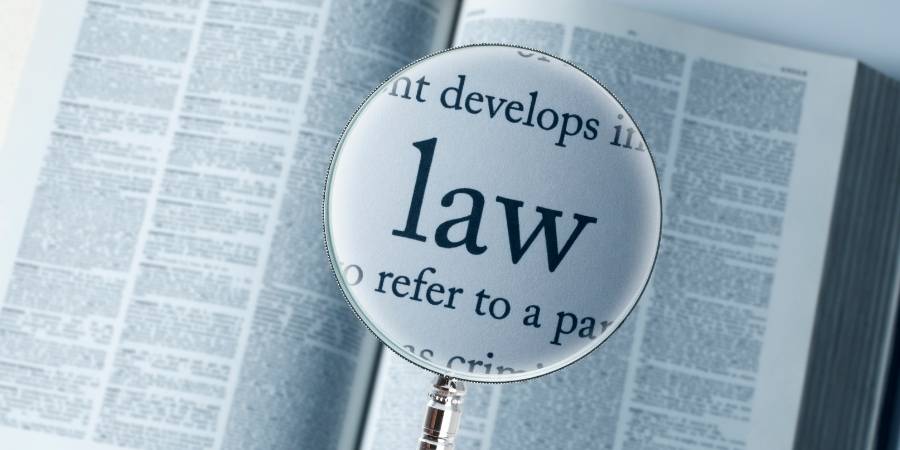Business law is a term that encompasses the entirety of the business world. It includes everything related to businesses and the people who own them, work for them, invest in them, and regulate them. It also has anything to do with large transactions or contracts. It can include litigation, which refers to disagreements or disputes relating to business transactions, agreements, or other dealings by one person against another.
There are many different types of cases that fall under this heading, depending on what kind of dispute is being dealt with. Still, all have one goal: deciding how two parties will move forward after reaching an impasse over a disagreement about some aspect of their relationships, like an investment agreement or employment contract.
Businesses have historically taken several approaches to resolve their disagreements over such matters. In the past, judges were usually called upon to help settle disputes between companies. Nowadays, conflicts are more complex and may involve multiple parties, so businesses get specialist lawyers who help them reach agreements or resolve disagreements through separate legal proceedings.
Lawyers are very concerned about certainty, cost, and convenience for their clients. A balance needs to be struck between protecting a client’s legitimate rights and not doing more damage than good. They will often opt for best practice and resolution rather than taking the case through to court if there is anything they can do by other means first.

Examples of Business Law
1. Contracts
Contracts are the most common example of business law. Most businesses enter into a contract at some point in their life, whether with someone who wants to work for them or with a customer or supplier. In many cases, disputes arise out of companies’ contracts which can be resolved by one of two options: litigation or mediation. The first is when both parties agree to take the case to court and decide it. The second is when both parties agree to have an independent third party arbitrate their dispute.
2. Insolvency
Insolvency happens when a business cannot pay back money that it owes to people or other companies. It can result from poor management, market conditions that cause sales to fall short of targets, or simply a failure to keep accurate records of the company’s commercial dealings. Whatever the reasons, various legal steps must be taken if the company wishes to avoid being declared insolvent. These include bringing in an insolvency practitioner who will examine all transactions made by the business and its directors to assess whether any law has been broken and what actions should be taken.
3. Mediation
The role of the mediator in resolving disputes through mediation is to bring the parties together and encourage them to agree on how they will move forward after failing to agree on how they should resolve their differences. It allows the dispute to be resolved efficiently and fairly in a civilized manner and avoids a trip over to court, which can be costly, time-consuming, and disruptive.
4. Employment Law
Employment law refers to laws that govern work relationships, such as contracts or agreements between employees or members of staff and employers. Enforcing these relationships is often tricky; a dispute can arise if a deal is broken. This type of case is heard in the employment tribunal, which can be expensive for both parties. Businesses should therefore ensure that they have contracts drawn up to protect themselves from claims being made against them, mainly if the services of employees are being used for a particular project.
5. Capital Markets Regulation
The capital markets are what provide funding for businesses to grow and develop. New companies will regularly look to the capital markets to raise money by floating their stock on a public exchange or issuing bonds to raise funds through private investors. Therefore, businesses have the right to seek redress when there are issues with investors or exchanges surrounding their business that are not being resolved promptly. Disputes can be dealt with through arbitration or in the court system.
6. Contract Modification
Businesses will often enter into agreements with one another, and they may want to modify these later if they discover that circumstances have changed, such as a better deal being offered by an investor or even a change in the law that impacts their activities. The alternative to modifying an agreement is to amend it. Both these options can put the business at legal risk if not drafted correctly or accurately.
7. Business Development
Business development refers to marketing and advertising activities undertaken by a business to bring potential customers or investors into contact with its products and services. It can involve a wide variety of behavior and is a complex area of law that deals with issues such as defamation, intellectual property infringement, unfair competition, and the sale of goods by pretenses.

Final Verdict
The need for international trade and investments has increased as the world has become more global. As a result, the increased use of contracts has further increased the demand for a strong network of business lawyers who can resolve any disputes that occur in cross-border commerce. The most common type of dispute in international trade is a breach of contract, which can take two forms: minor and significant. In major breaches, it is considered that serious harm has been caused to one or both parties. At the same time, in minor violations, not much damage is generated, and this type of dispute can be resolved amicably through mediation.
